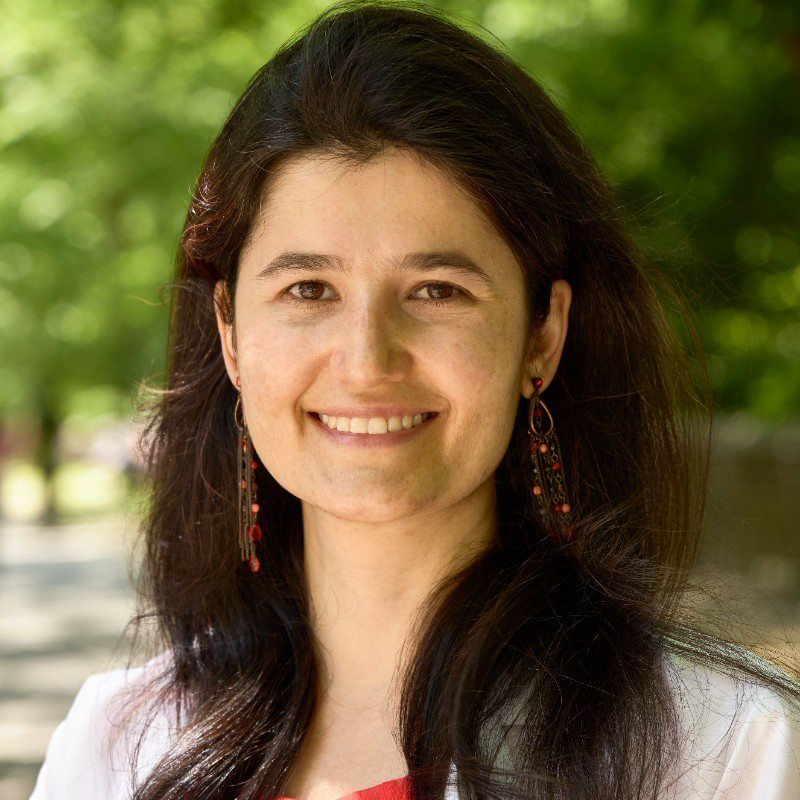Meet Veronica Peschansky, MD, PhD, assistant professor, director of inclusion and belonging
Date Posted: Tuesday, January 16, 2024“If you understand consciousness, you can understand how we interact with the world - so the brain is everything to me.”

This is the passion and research focus of Veronica Peschansky, MD, PhD, assistant professor in neurology, and clinical faculty researcher in the neurocritical care division, Lakeside 2, neurotrauma intensive care unit (ICU) with UMass Chan Medical School and UMass Memorial Health.
Dr. Peschansky's clinical focus is on caring for critically ill patients with brain injury, including how the injury impacts the rest of the body. Patients from brain injury or severe strokes require care in supporting multiorgan failure, brain hemorrhages, trauma, and other major neurological events.
Dr. Peschansky’s research interest centers on what happens after a person survives a neurocritical illness: how does someone in a coma or with a decreased level of consciousness recover? How do we identify and help patients who can reconnect with their livelihoods and regain a meaningful connection with their loved ones?
Dr. Peschansky studies epigenetic biomarkers with an interest in defining new endotypes of disorders of consciousness, understanding the biology that causes patients to be comatose or lacking awareness, and targeting potential future treatments. These biomarkers will reflect how the body uses the genes we are born with, and how they are turned on and off in reaction to physical and psychiatric events including illness and trauma.
Her research investigates the relationship between coma and disorders of consciousness, which impair our ability to interact and communicate when not awake. Dr. Peschansky shares, “Aligning this perspective in the prognosis of illness may help to develop targets and strategies for transitioning from unconsciousness into consciousness.”
As part of the UMass neurocritical care and neurotrauma group, Dr. Peschansky studies brain pressure and monitors oxygenation in moderate to severe traumatic brain injury patients by participating in the BOOST-3 clinical trial. This work contributes to our understanding of the impact of Intensive Care Unit (ICU) complications on short- and long-term outcomes in traumatic brain injury via the UMass OPTIMISM database.
Dr. Peschansky's educational journey adds to her experience in understanding diverse populations across the United States. She is fluent in three languages, Russian, English, and Spanish, and is currently studying Ukrainian and Italian as well. Her educational journey began with a BS in Biology and Spanish Language and Literature at Brandeis University in Waltham, MA. Following her interest in healthcare, she completed medical school, and a PhD program in neuroscience at the University of Miami, Miller School of Medicine. She traveled to Oakland, CA, for her internship in internal medicine at Highland Hospital, Alameda Health System before returning northeast to complete her neurology residency at Icahn School of Medicine at Mount Sinai, NY, and a fellowship in neurocritical care at Columbia University & Weill Cornell Medicine/ New York Presbyterian in New York, NY. Veronica returned to Massachusetts and joined UMass Chan in August 2023. She values the influence these varied communities and cultures have had on her development as a physician and looks forward to learning all that Worcester and Central Mass have to offer.
Veronica Peschansky, MD, PhD, serves as Neurology’s appointed director of inclusion and belonging, the department’s diversity, equity, and inclusion committee. She leads her initiatives by “understanding what the diverse aspects of our patient population are and tailoring our service to meet their needs.”
To create a culture of inclusiveness inspiration from our institutional and departmental leadership in prioritizing the perspective of self-identify. Peschansky believes their belief impacts relationships with colleagues and their profession. Dr. Peschansky would like to learn more about the department’s inclusive needs and invites our neurology community members to share their experiences with her. Her professional and educational experiences have prepared her to do important things at UMass Chan.
We are excited to learn more about the impact her research will provide in terms of understanding consciousness and coma patients and developing improved treatments for patients with traumatic brain injuries.